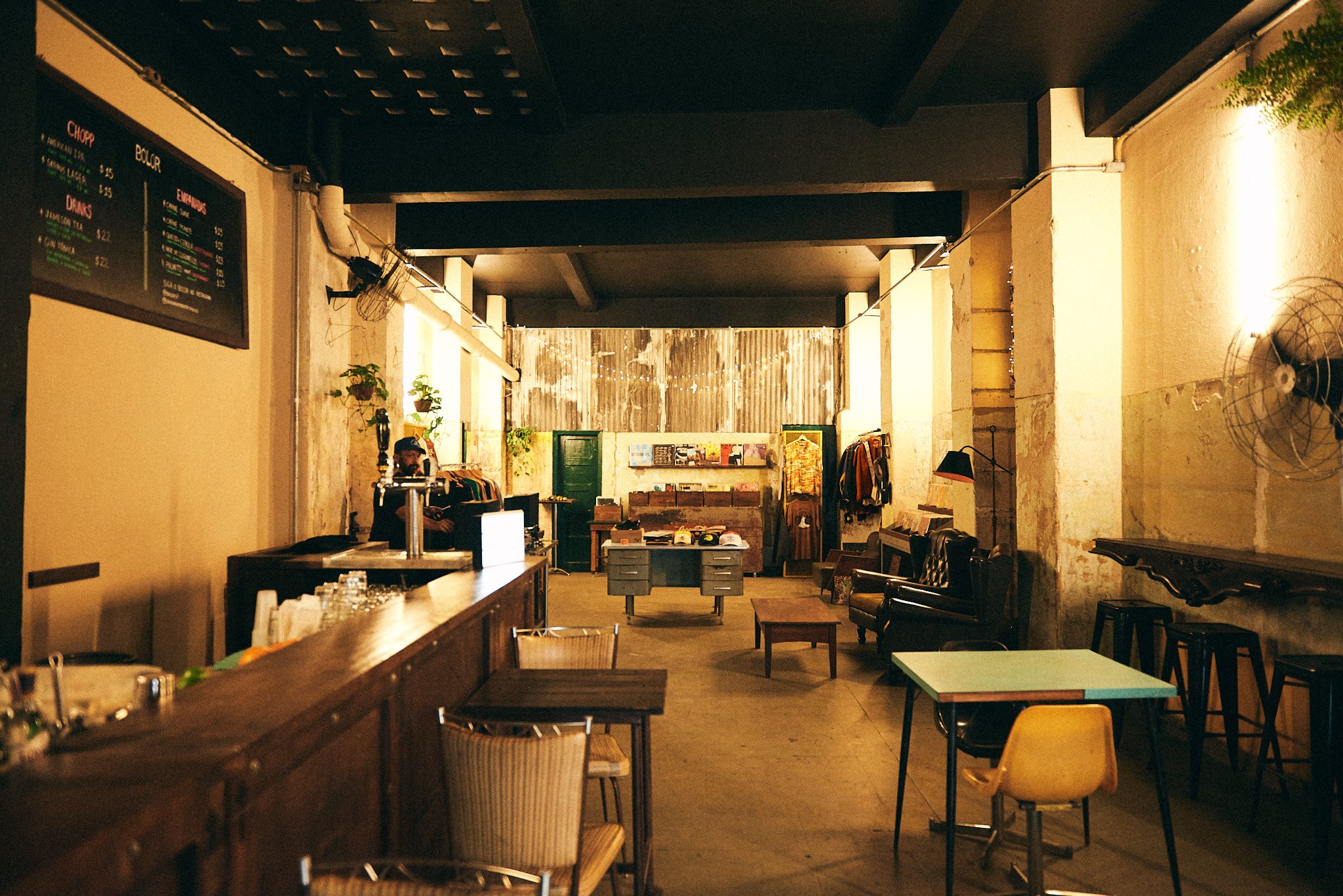Noise, Art and a Cultural Revolution
Music has always been a part of Paula Rebellato's daily life. Drawn to sound and driven by curiosity, the São Paulo native began experimenting with computer collages and taught herself to play instruments in her teenage years. São Paulo itself served as both a medium and an influence, shaping and reflecting her creations: from the city's noise to the search for something opposite and meditative.
Restless and constantly creating, Paula has solo projects, is a member of duos and bands—including Rakta, currently on hiatus—with which she toured the world for a decade. Additionally, she now runs a music studio and Porta, a cozy spot in the western zone where you can experience excellent experimental music.
In a conversation with Inner Circle, the artist shared her journey in music, discussed the art of managing a cultural space, and recommended underground spots in São Paulo to discover original, improvised, and delightfully quirky music.
Recently re-inaugurated, Porta offers a curated selection of independent artists and bands in its weekly program.
Paula, how has your journey in music been—discovering what you like, experimenting, and developing the projects you have today?
I started producing music in my teenage years, experimenting with computers and creating sound collages. I've always been interested in playing instruments and trying to learn. My journey has been largely self-taught—I learned what I do today in my own way and played in a few bands before forming Rakta, the band that truly set me on this musical path.
Rakta began in 2011 with four girls at the time, and from there, I started exploring many other musical paths. I delved into experimental and improvised music, created solo projects, and joined other bands. I also compose soundtracks—essentially anything involving sound and music. Extensive tours with Rakta across many parts of the world helped me build a network within the music scene, both in the underground scene where I originated and in the realm of experimental and improvised music.
Does São Paulo inspire your artistic process in any way?
São Paulo has definitely influenced my music a lot, especially with Rakta, which has a more aggressive, noisy, chaotic sound—an outlet for expression. This also extends to my other projects, like Acavernus, a solo endeavor that ventures into darker, more obscure musical realms. Noisy music, in particular, connects deeply to the city, both in its external urban chaos and our own internal noise.
São Paulo brings out both the most violent and chaotic creative energy, as well as the search for its opposite—something more meditative, which is also reflected in my work. I don’t think it’s possible to separate the environment you live in from what you create. In fact, whenever I’ve had the opportunity to create in other places, I’ve been able to notice the difference in what came out of those experiences.
What musical projects are you currently working on?
My active projects right now include the band Madrugada, my solo project under my own name, Paula Rebellato, and collaborations in duos and trios. I occasionally work in a duo with my Palestinian friend, Yousef Saif, and with Mari Crestani, who’s my partner in the studio. I’ve also recently started a duo called Qamar with multi-instrumentalist Cacá Amaral. Rakta is currently on hiatus. I also enjoy working on soundtrack projects.
What is it like to be an artist and also manage a cultural space?
Porta was born in March 2022, founded by me and two partners, Rafael and Bruno. We opened right after the pandemic, and since then, it has been a rewarding chaos. It's very fulfilling to work with culture and independent music, contributing to the scene. It's a challenge, especially because we are independent, balancing our passion with the commercial side—paying bills, artists, and ourselves. It's been a very enriching journey, tough but also extremely rewarding.
We’ve just moved to a new location, a larger house where we can host more people, parties, and bands, with better infrastructure. It’s been a truly intense experience. And, having been welcomed into various spaces during my time with Rakta, it’s been interesting to now be on the other side, welcoming and hosting others.
What are your favorite places in São Paulo to listen to original, independent music and discover new artists?
Since I opened Porta, it's been hard to spend time in other places, but there are two that I would say are very relevant to me because they also embrace the city's strange music – which is where I belong. There’s Bolor, run by the former owners of Hotel Bar. Now, they are in the Santa Cecília area with a new space that has started opening its agenda for live shows. There’s also Garagem Beleza, located closer to Pompeia, a small venue that also hosts experimental music. Both places are independent and run by people genuinely passionate about music, nightlife, and art, keeping the city’s creative energy alive and thriving.
"I don’t think it’s possible to separate the environment you live in from what you create. In fact, whenever I’ve had the opportunity to create in other places, I’ve been able to notice the difference in what manifested there."
In addition to being a bar, Bolor is also a mix of record store and thrift shop. Open from Thursday to Saturday, the bar hosts DJ sets and small live performances in a pocket show format.



